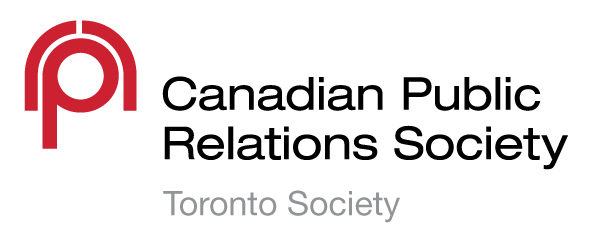By: Laik Sweeney, University of Guelph-Humber graduate and President of the Canadian Public Relations Society’s Toronto Student Steering Committee
We are taught from a young age that those who are creative and would like to pursue a career within the media landscape are less likely to make a wage comparable to their peers in technology or sciences. For far too long, unpaid internships have been known as the way students get their foot in the door, and that’s the way it is for many who have chosen a Media or Art program. The PR industry has normalized students going unpaid for work which is detrimental for not only students, but employers as well.
I completed an unpaid internship for my university credit and while I had a great experience and learned a lot, I have been researching more into the benefits and value that paid internships bring to all parties. I am also the President of the CPRS Toronto Student Steering Committee and my role revolves around helping other students. By bringing unpaid internships further into the spotlight, I believe we can all help future students, employers and the industry as a whole.
Talent retention
There are many reasons to invest in interns financially. One struggle for many PR firms is talent retention, with “turnover in the PR industry more than twice as high as the average turnover in the professional services sector at large.” Economically investing in interns may decrease this problem. More talented students, especially those in financially difficult spots, are more willing to apply for a paying job. This creates a larger applicant pool with more opportunities for companies to find the perfect fit for their specific needs.
Not only do companies increase their application pools, but interns bring in fresh ideas, which is needed within the ever-changing social media and communications space. Those coming right out of school bring an injection of new energy into their workplaces and help contribute innovative ideas to the evolving media landscape that PR firms continuously need to adapt to. While the student may have little to no experience, it is still a real position adding value to the company.
Unpaid internships reinforce socioeconomic barriers
While the student in an internship position is getting valuable knowledge and other great resources, this is simply not enough. Unpaid internships leave those in vulnerable situations in the dark. It creates a bad taste for the entire industry by promoting those who are privileged to afford an unpaid internship over those in financially challenged households. Companies risk losing out on incredible new talent—students who can only apply to paid internships rather than unpaid. The public relations industry needs more diversity, and unpaid internships make it even harder for the industry to become more diverse.
Not only are companies who don’t pay their interns creating a specific kind of workforce for the future, but they’re also dampening their own reputation. Reputation is one of the most critical factors for a company when thinking about talent retention. Moreover, when companies don’t pay their interns and omit salary details in job applications, future applicants may not think that company offers competitive salaries, potentially deterring them from applying for positions later in life.
Education costs
Pursuing post-secondary education is an investment in our futures, and many students work very hard to fund this endeavour. The companies that want to help give students a chance to learn and succeed should also financially invest in them. Many students, like myself, leave home to go to university and must pay rent, which is more economically challenging. While this issue has subsided for many due to the work-from-home or online learning formats, the cost of going to university is still high. According to Statistics Canada, in 2015, the average Canadian post-secondary student owed $30,000 at graduation. University tuition fees aren’t going down either. While some universities lowered some expenses for the Fall 2020 semester, prices are back up for Winter 2021 despite remote learning continuing.
In my own experience, many of my PR classmates weren’t paid for their internships either and needed to work a second job to try and make ends meet when their internship workday ended, adding to the financial stress students already face.
In Ontario, unpaid internships are only legal if the intern is a student receiving academic credit for their work. However, this academic credit is not free to the student. Completing an unpaid internship can make it hard to pay back the fees for that semester. For example, my program required 240 hours of placement to graduate, and the internship course costs approximately $2,000. This means that even if I were to get paid the amount I spent on the internship, I would be making $8.35 an hour. While honorariums are better than unpaid internships, they still promote the thought that creative-based skills are not valued or worth a real wage. This completely devalues the profession and skills needed to be successful in the field.
Ultimately, the repercussions of unpaid internships hurt everyone involved. The Canadian Public Relations Society is a great supporter of paid internships and I have been working with CPRS Toronto to survey students and employers to get an accurate grasp of how big of a problem unpaid internships are, and what can be done about it.
My hope for the future is that all employers change the way they value student internships, seeing them as an important strategy to attract talent and mentor the next generation. Paying interns is something that is ultimately beneficial not only to the students and employer but for the reputation of our industry as a whole.

